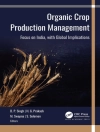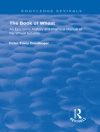Co-published with the Food and Agriculture Organization of the United Nations. Fisheries management is the process that has evolved to try to ensure that fisheries operate in a manner that provides the immediate benefits in a sustainable manner. The widely accepted goal is that the full range of benefits should not only be available for this generation but for generations to come. Fisheries management has been successful in some cases but there have also been many, many cases of failure.
This volume is intended to contribute to improving this unsatisfactory state by addressing the widespread need for information and guidance on the broad and often complex task of fisheries management. It is an updated and expanded edition of the first version of ‚A fishery manager’s guidebook‘ which was published as a FAO Fisheries Technical Paper in 2002.
The major part of this new edition is divided into five parts intended to cover the range of concerns, tools and techniques essential to the modern fisheries manager, whether that manager is an individual or a formal or informal group. Following the Introduction:
* Part I examines the primary dimensions of fisheries: biological, ecological, social and economic
* Part II looks at the legal and institutional characteristics of fisheries
* Part III explores the tools that fishery managers have to achieve the objectives expected from a fishery
* Part IV discusses the role of scientific information of indicators and reference points
* Part V moves into implementation of fisheries management and includes a chapter on special considerations in small-scale fisheries
This landmark publication is aimed at fishery managers and scientists. All libraries in research establishments and universities where fisheries and aquatic sciences are studied and taught will need copies of this important volume.
Fisheries around the world make essential contributions to human well-being including the provision of basic food supplies, employment, recreational opportunities, foreign currency and others, providing benefits to hundreds of millions of people. Despite these benefits, our record of managing fisheries so that the benefits can be sustained has been poor, at best, and most fisheries around the world are experiencing serious ecological, social or economic problems and usually all three. Today there is global concern about the state of fishery resources and aquatic ecosystems, their resilience to future stresses such as climate change and their ability to continue to provide benefits.
Inhaltsverzeichnis
1. Introduction – Fisheries Management (Kevern L. Cochraneand Serge M. Garcia).
Part I: The Primary Dimensions of Fisheries.
2. Biology and Ecology Considerations for the Fishery Manager(Yvonne Sadovy de Mitcheson).
3. Social Aspects of Fisheries Management (Fikret Berkes).
4. Economic Principles: An Economic Perspective on Fishing(Arne Eide).
Part II: Legal and Institutional Considerations.
5. Legal Aspects (Blaise Kuemlangan).
6. The Fishery Management Institutions (François Feral).
Part III: Management Measures and Tools.
7. Regulation of Fishing Gears and Methods (Åsmund Bjordal).
8. Area and Time Restrictions (Stephen Hall).
9. Input and Output Controls: The Practice of Fishing Effort and Catch Management in Responsible Fisheries (John Pope).
10. Rights-Based Fisheries Management: The Role of Use Rights in Managing Access and Harvesting (Anthony Charles).
11. Partnerships in Management (Evelyn Pinkerton).
Part IV: Scientific Information and Advice.
12. Which Indicators for What Management? The Challenge of Connecting Offer and Demand of Indicators (Serge M. Garcia, Hélène Rey-Valette, and Clotilde Bodiguel).
13. The Use of Scientific Information (Kevern L.Cochrane).
Part V: Implementation.
14. Fishery Monitoring, Control and Surveillance (Per Erik Bergh and Sandy Davies).
15 Special Considerations for Small-Scale Fisheries Managementin Developing Countries (John Kurien and Rolf Willmann).
16. Fisheries Management Plans (David J. Die).
Part VI: Conclusions.
17. From Past Management to Future Governance: A Perspective View (Serge M. Garcia and Kevern L. Cochrane).
Glossary.
Über den Autor
Kevern L. Cochrane is Chief, Fisheries Management and Conservation Service of the Food and Agriculture Organization of the United Nations, Rome, Italy.
Serge M. Garcia is the former Director of the Fisheries and Aquaculture Management Division of the Food and Agriculture Organization of the United Nations, Rome, Italy.












